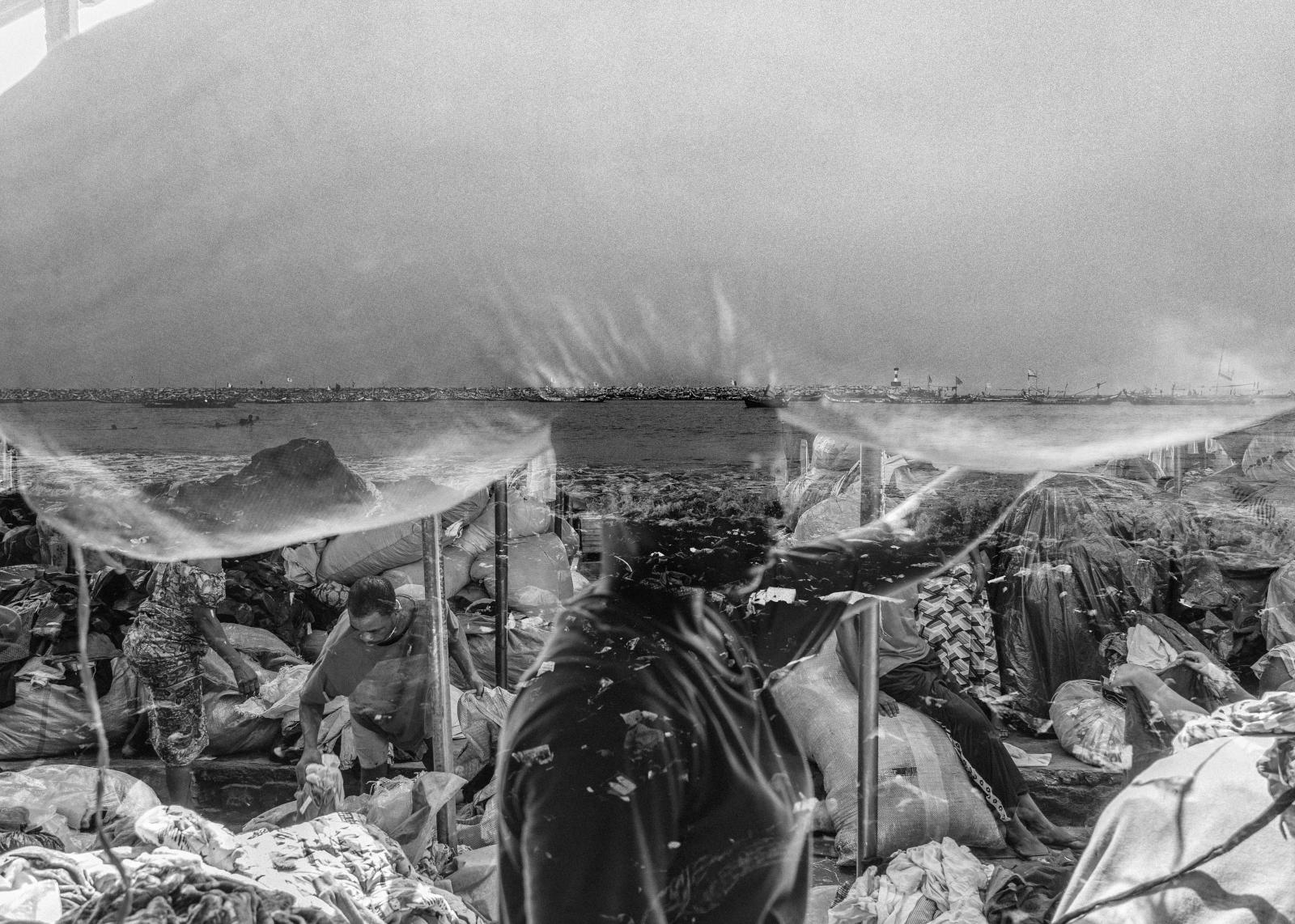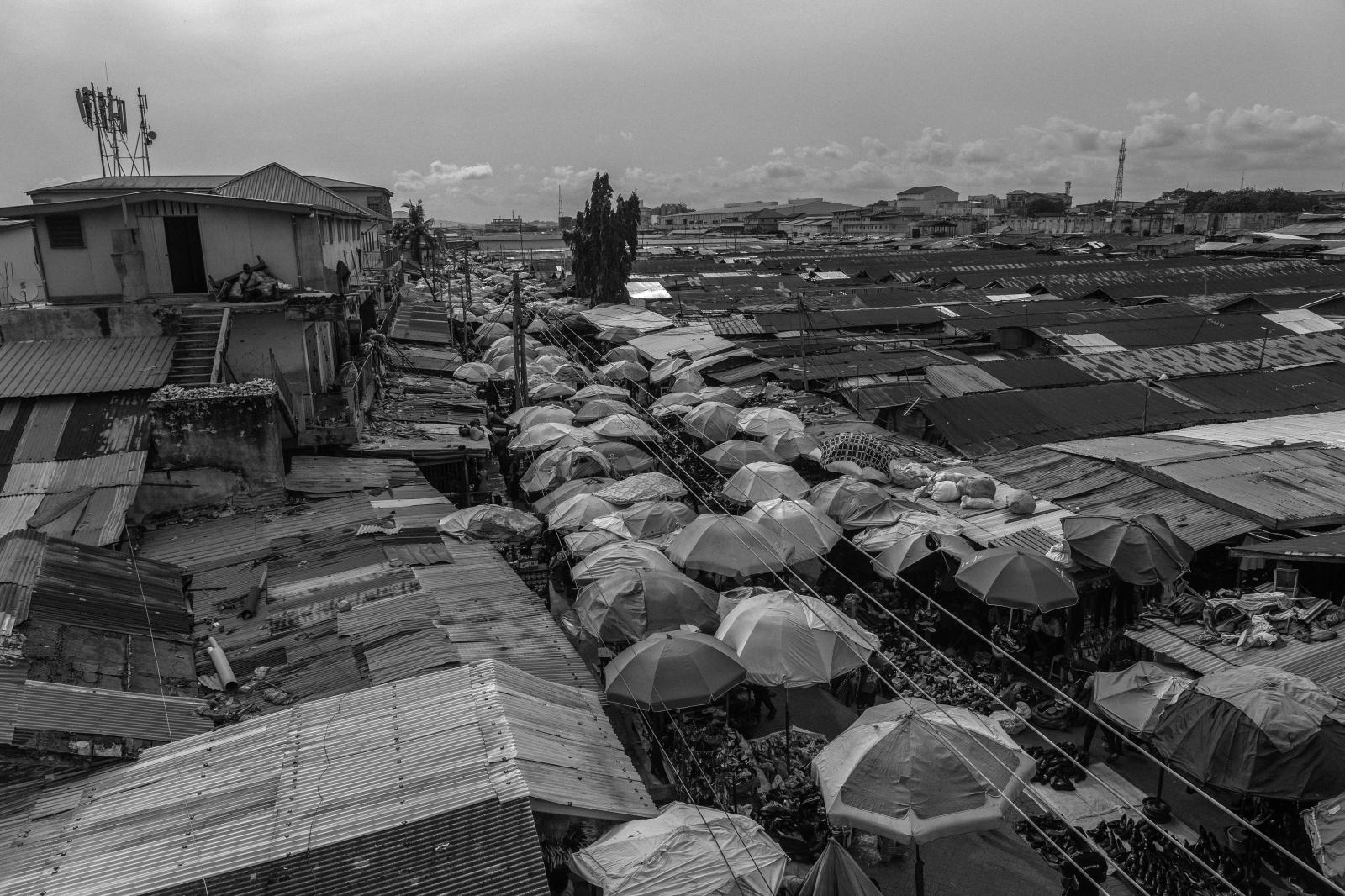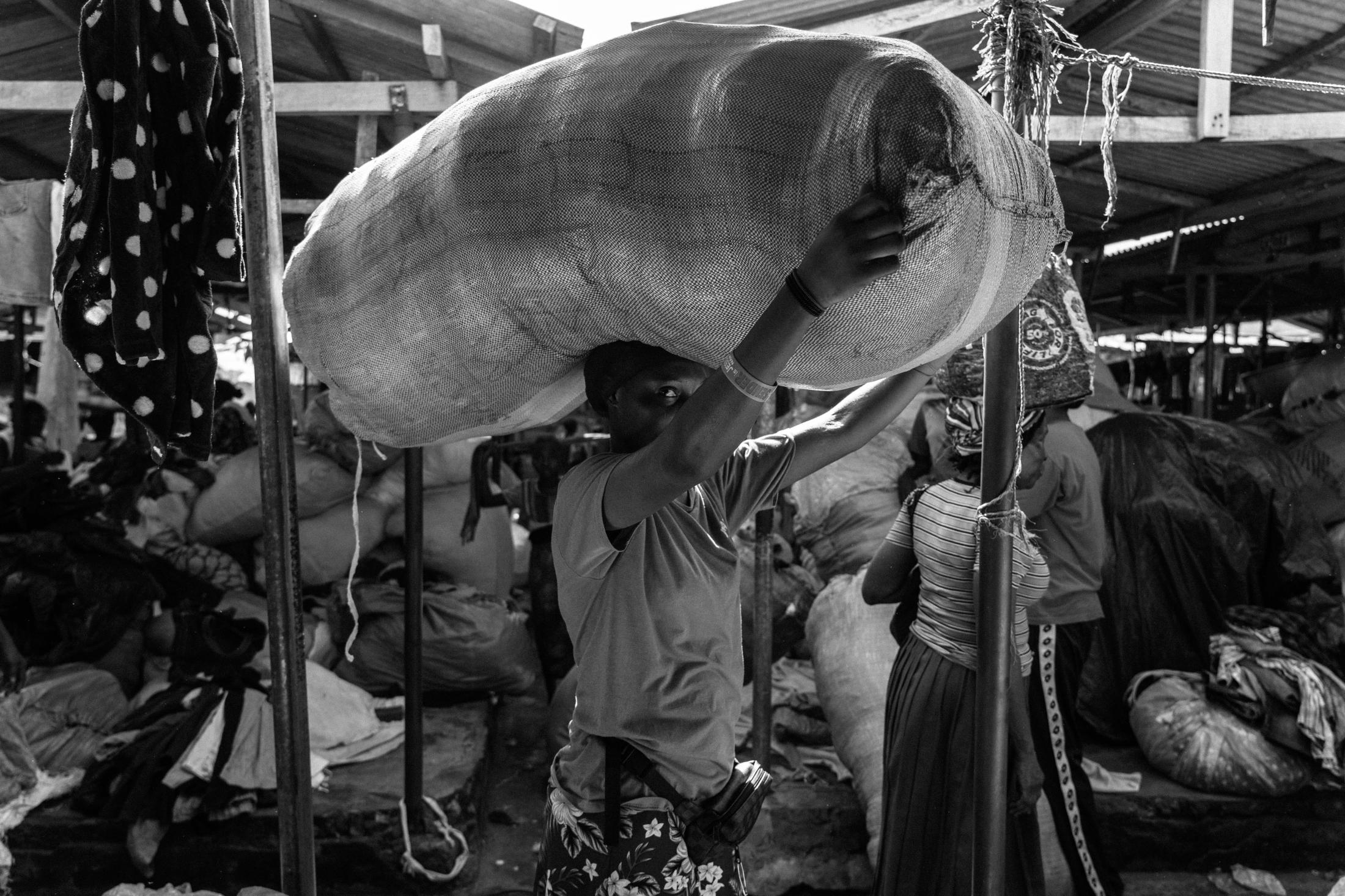At the heart of this crisis are the kayayei—young women who migrate to Accra due to climate change, economic hardship, and lack of opportunities in northern Ghana. They earn meager wages carrying bales of second-hand clothes, sometimes weighing over 55 kg, leading to long-term spinal injuries. Their struggle embodies broader issues of gender inequality, poverty, and urban hardship.
Kayayei live in Agbogbloshie, Accra’s largest slum and one of the world’s biggest e-waste dumping sites, where textile and plastic waste compound pollution. Burning e-waste releases toxic chemicals, contaminating air, soil, and water, causing severe health conditions such as respiratory problems, cancer, and neurological disorders.
In early 2025, a devastating fire destroyed much of Kantamanto market, leaving over 10,000 businesses in ruins and countless livelihoods at risk. For the kayayei, this tragedy means losing their ability to support themselves and their families, adding to an already uncertain future.
Through layered portraits of kayayei women, polluted landscapes of Accra’s beaches, and burned remains of Kantamanto market, Woven Fates exposes the intersection of fast fashion, colonial legacies, and environmental injustice, revealing how Western consumption patterns continue to exploit and burden nature and people in the Global South.




















